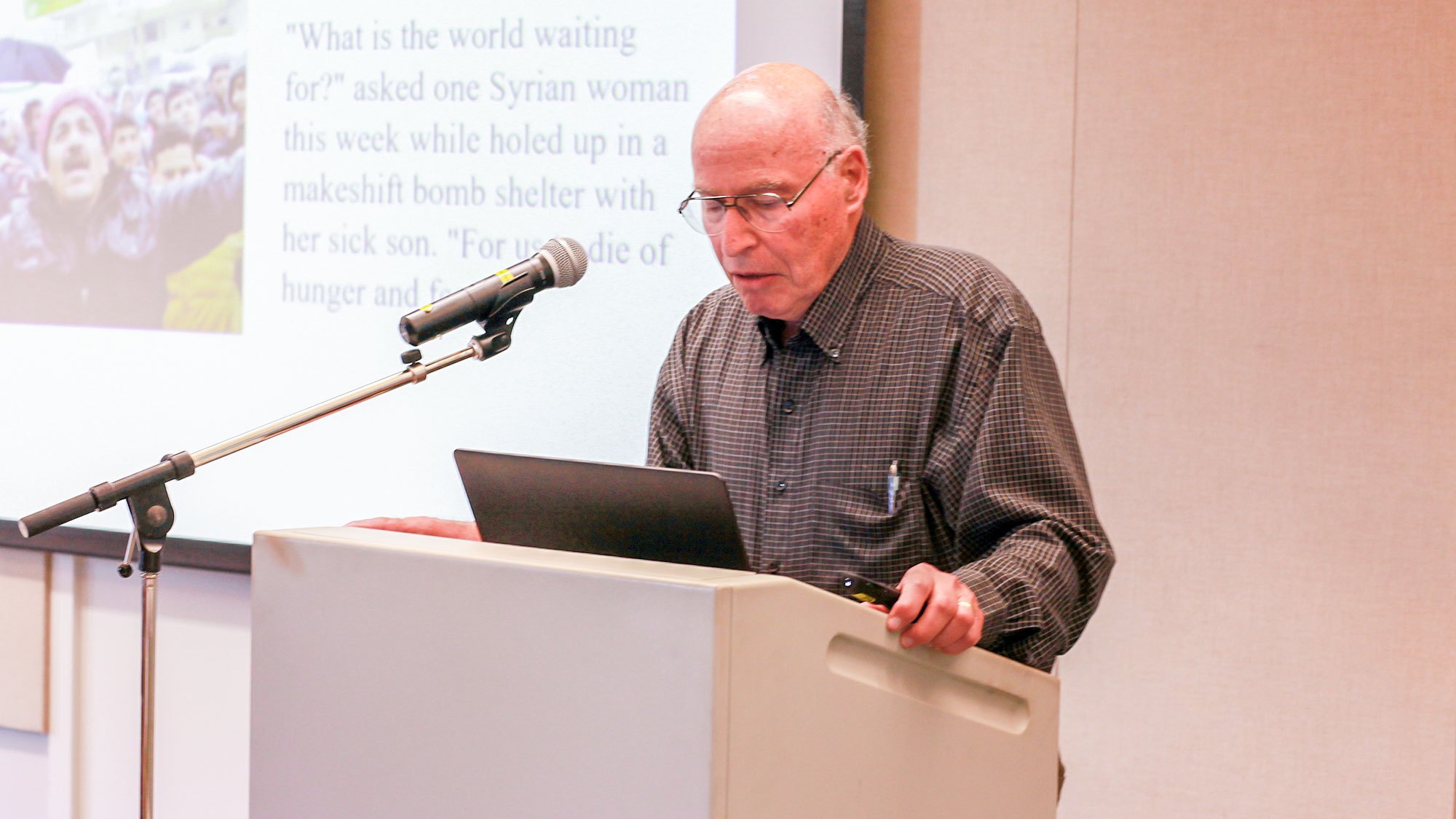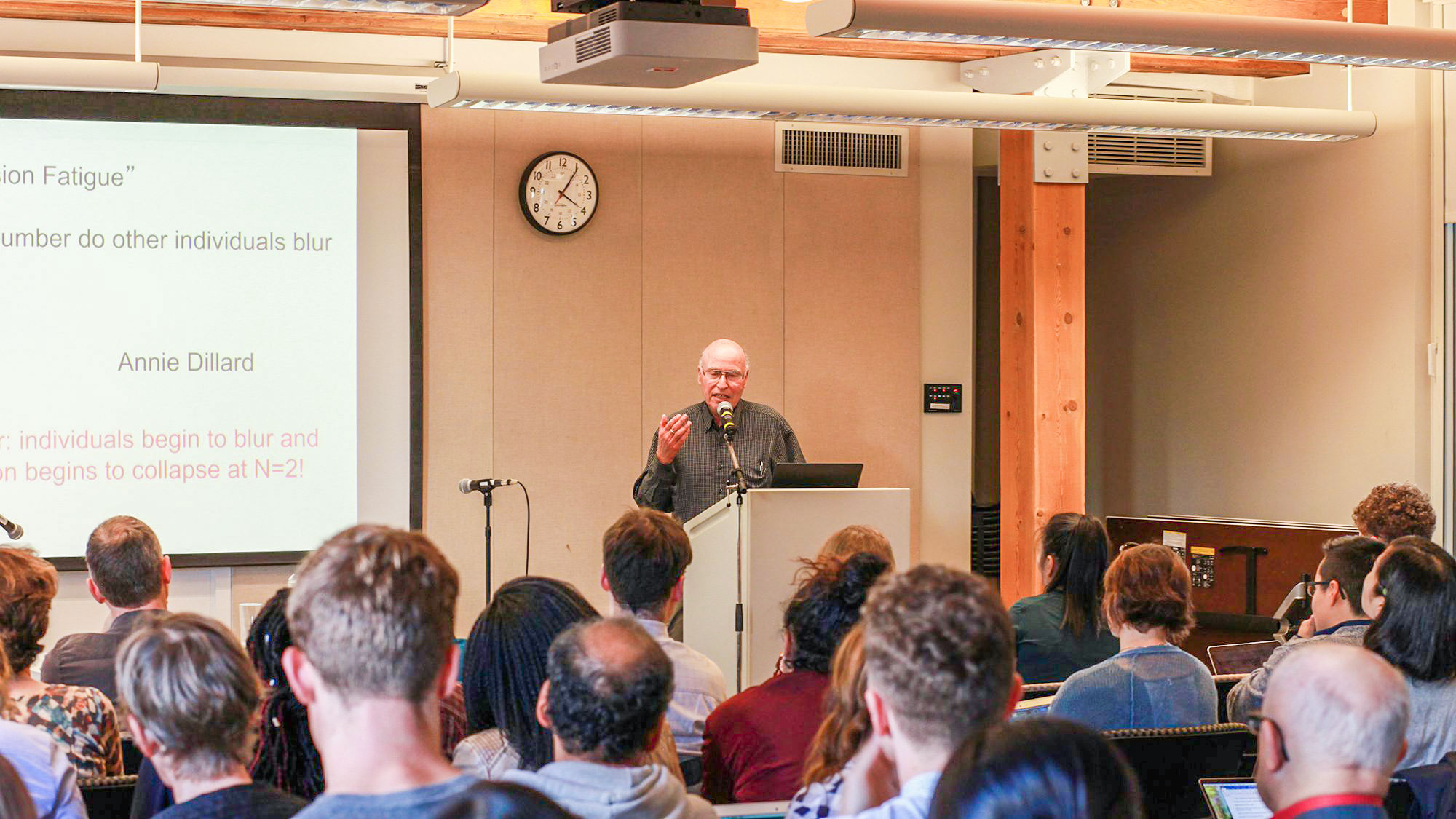A few weeks ago, I looked through the upcoming public lectures happening at UBC and found one that interested me. This talk, The More Who Die, the Less We Care, featured speaker Paul Slovic, a professor of psychology from the University of Oregon.
As an international relations major, this talk stood out to me as it relates directly to what I’m studying – two of my political science professors actually came to the talk as well.

Lecturer Paul Slovic
Dr. Slovic discussed his research on the “Arithmetic of Compassion”, which explains how humans tend to react differently to news of individual deaths versus news of genocides and mass war casualties, due to “psychic numbing”. The effect results in people getting more emotionally affected to news of the loss of individual lives than lives lost as a part of a larger crisis – in other words, when the number gets too high, it becomes a statistic, and it is harder for us to empathize with great numbers.
Paul Slovic also showed us that it’s not just astronomically high numbers that result in us reacting differently – in an experiment, it was found that participants were more willing to help fund a cancer treatment costing $300,000 if it benefited just one sick child. If there were eight sick children and the total cost of their treatments combined was also $300,000 (equal to the treatment cost of the one sick child), people donated less overall. Similar results were shown when it was just two kids, compared with one.

This talk stood out to me because it related to my interests, and to the conflict studies classes I am taking at the moment. The benefit of learning this subject from a visiting speaker meant that I can compare what I discovered in this talk to what I’m learning from my UBC professors, and get a different perspective on related topics. It’s also unlikely that I will take a psychology class during my time at UBC, so I appreciated the opportunity to attend a lecture by a psychology professor.
If you’re interested in attending a public lecture on campus, check below for some upcoming events, or check out this blog post on public lectures at UBC this semester. Bonus: most lectures are free and open to all!
The following lectures are ones that relate to current issues and politics and interest me especially – they will get you through the month of October. After that, be sure to check back to events.ubc.ca for more public lectures and other events.
October 22 – The Rules We Vote By: Rationales for Electoral Reform in BC and Beyond
BC is about to have its third referendum on electoral reform within fifteen years. This talk will explain the rationale behind this third BC electoral referendum as well as electoral referenda more generally, and provide information to help everyone interested in the current BC referendum understand what the options for electoral rules on the table could entail.
October 24 – UBC Journalism’s Asper Talk Public Lecture with Andy Carvin
Andy will explore how the Internet has created new opportunities for public understanding while also sowing the seeds of mistrust and confusion. When all is said and done, what will it take for trust – in journalism, in society, and in ourselves – to come out on top?
October 27 – The Unique Lived Experiences of Refugees in Metro Vancouver, a Public Forum
Join us for a free, public forum, The Unique Lived Experiences of Refugees in Metro Vancouver, that will highlight the contributions and unique lived experiences of people who came to Metro Vancouver as refugees. In particular, you will hear from people living with disabilities and those from the Lesbian, Gay, Bisexual, Two-Spirit, Transgender, Queer and Intersex communities.
October 30 – Irrationality in Law and Life: Heuristics and Biases in Legal Decision Making
Do judges really round murderers’ sentences to the nearest even-numbered year? Do parole decisions turn on the timing of judges’ meals? Are taller people really considered to be more truthful in court? This talk addresses new discoveries in the science of subconscious decision making and how they are changing our conception of legal advocacy, persuasion and judicial decision making.
Looking for something other than a talk? Check out events.ubc.ca for events going on at UBC, and follow @UBCevents on Twitter for up-to-date info.